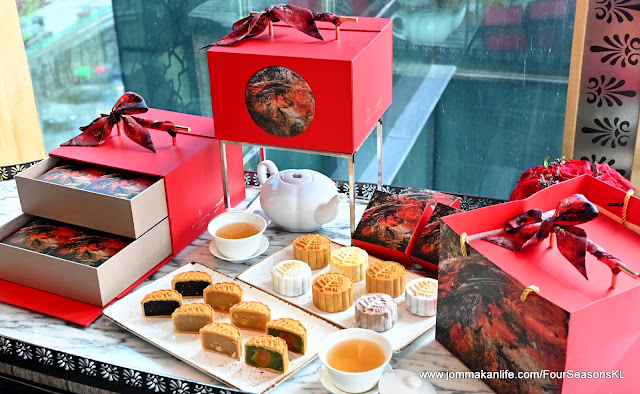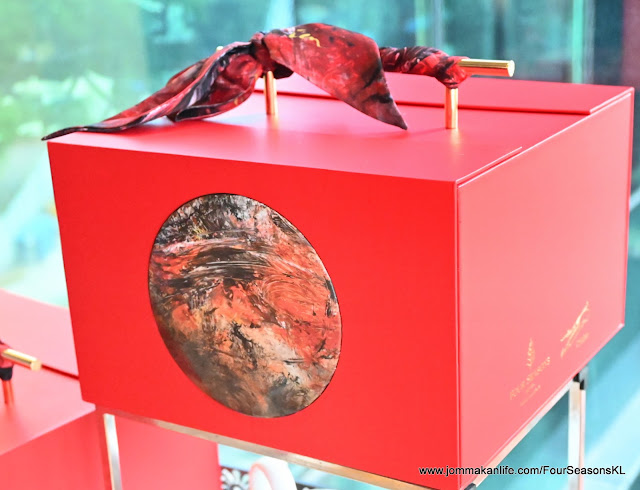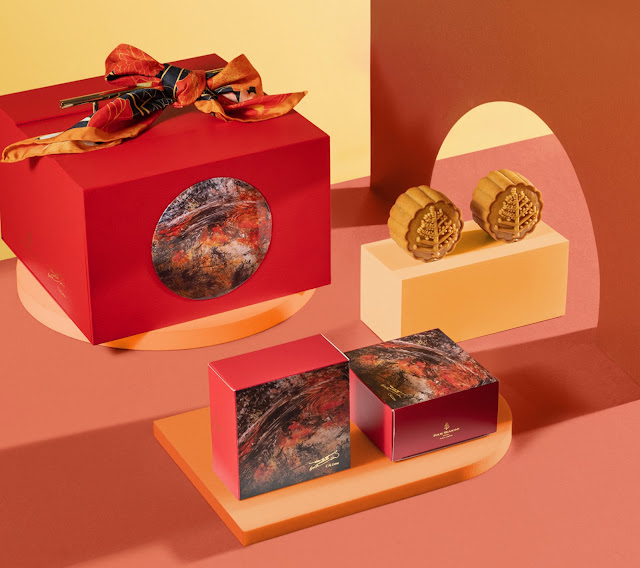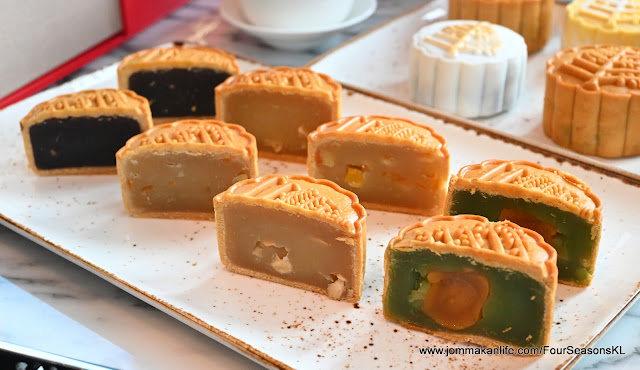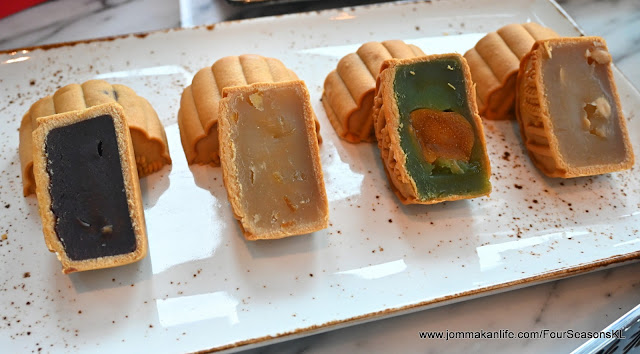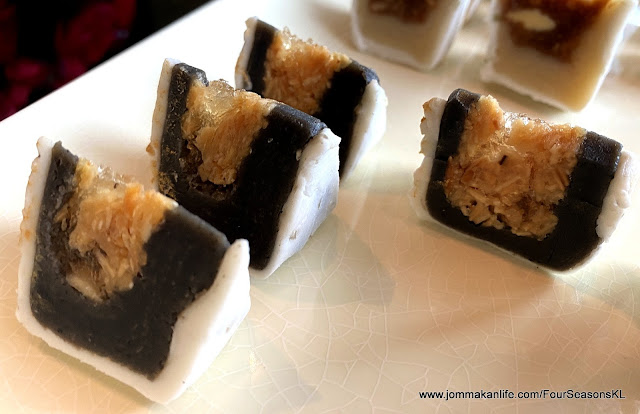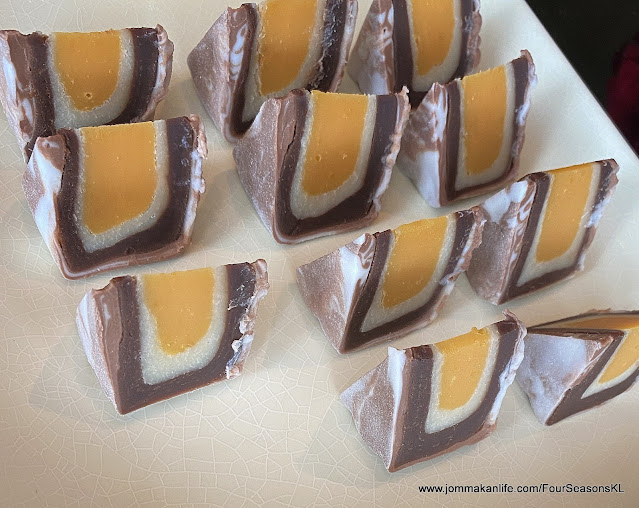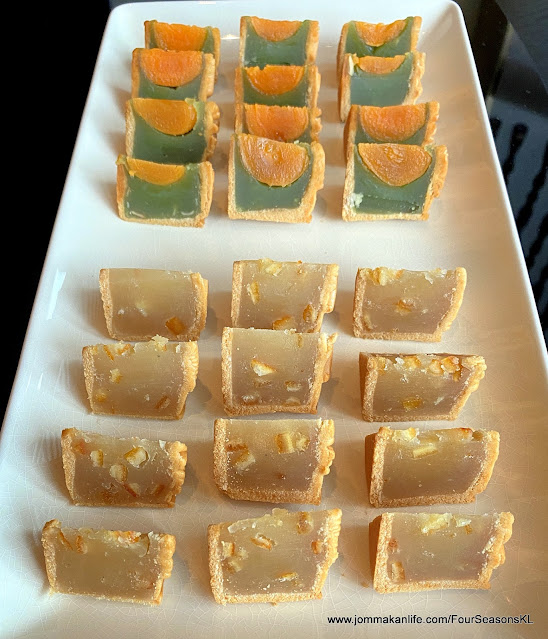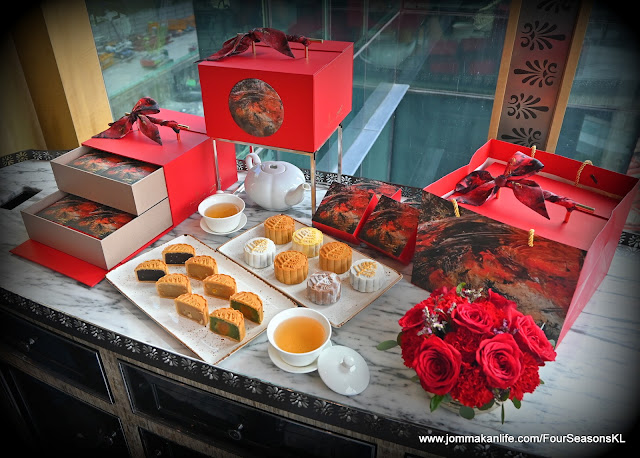Ayu
fish and Hida beef from Gifu Prefecture will take centre stage at Kampachi
restaurant, EQ Kuala Lumpur from 17 – 23 July.
At a special dinner graced
by Gifu Prefecture Governor, Hajime Furuta (2nd from left) and Ambassador of Japan to Malaysia,
His Excellency Katsuhiko Takahashi (2nd from right), we were treated to Gifu’s native produce: Kikurage mushroom,
Shungiku (chrysanthemum greens), and Gohei-mochi complemented by a selection of
sake such as Tamakashiwa (award-winning Junmai Daiginjo with well-balanced, muted
melon sweetness and fresh acidity) and Hyakujuro Akazura (smooth, super dry Junmaisyu
with rich aroma reminiscent of cooked rice). Located between Tokyo and Kyoto, Gifu Prefecture is a haven of natural
beauty, nestled amidst the breathtaking Japanese mountain range. Its pristine
rivers and lush forests, fresh environment and sustainability practices make
Gifu known for its exceptional agricultural produce.
Furuta said: "Gifu is blessed with abundant agricultural products,
and we are thrilled to promote them beyond Japan. We are committed to
sustainable farming practices and preserving the unique landscape of Gifu."
Furuta then presented Kampachi with the ‘Recommended Overseas Gifu Ayu Restaurant’ certification by the Globally Important Agricultural Heritage
System (GIAHS) and ‘Ayu of the Nagara River System’ Promotion Association; making the restaurant the first in Malaysia
and second in the world to receive the honour.
Guests were then treated to a sumptuous dinner of Ayu fish and Hida beef
prepared by Kampachi Japanese chef Yusuke Ishigami. Also known as sweet fish, Ayu
can only be found in the purest and cleanest waters especially in Gifu’s Nagara
River.
Cherished by the local community for centuries, the river also helps to
give rise to and nurtures traditional "Cormorant Fishing" with 1,300
years of history; and "Hon Mino washi paper", handmade Japanese paper
registered as a UNESCO Intangible Cultural Heritage.
Raised in several facilities in Gifu Prefecture using clean, natural
spring water under strict hygiene and temperature control, sustainably farmed Ayu
fish is now available year-long. Fine, tender with beautiful marbling, Hida Beef’s melt-in-the-mouth
texture, and rich aroma and taste gained widespread recognition when Hidagyu
achieved top honours at the 8th All-Japan National Wagyu Cattle Expo in 2002,
held in Gifu Prefecture. Its continued success at various Beef Cattle Expo in
2012, 2013 and 2015 has made Hida Beef highly sought-after by discerning food
lovers.
Our Gifu dinner commenced with Ayu Kanroni, simmered sweet fish in sweet
soy sauce. The surprisingly firm albeit boney fish had fine flesh; its stomach
was roe-filled. I like how the caramel-like shoyu that enhanced the fish’s natural
sweetness.
The raw slices of Hida Gyu Carpaccio gave my jaw quite a workout.
Luckily, the pleasant meaty richness accompanied by fresh greens and baby
tomatoes made sampling the beef a distinct experience.Sweet memories of my sojourn to Takayama returned when I sampled Ayu
Shioyaki, grilled sweet fish with salt. We learned how to debone the fish by
flattening the curvy Ayu with our chopsticks then gently pulling the tail to
dislodge the whole vertebrate. The flesh was delicious and sweet, accented by a
hint of salt.
True to all the key characteristics preceding it, the Hida Gyu Misoyaki –
Hida beef with homemade miso didn’t disappoint. Served medium rare, the
thickish beef slices tasted almost buttery on the palate. We love how the savoury
miso with an imperceptible tinge of heat added a tantalising dimension to the
meat.
For the speciality of Ayu Gohan (rice with sweet fish), the chef grilled
the fishes separately then deboned and filleted them. The fish bones are used
to make fish stock to cook the rice. To serve, the fish fillets are placed atop
the cooked rice for presentation before everything was mixed together. While
the rice tasted acceptable, the fish was too broken up to make its presence
felt.
We enjoyed every drop of the Nameko Misoshiru, a soulfully satisfying miso
soup with nameko mushroom. These small, amber-brown mushroom with a slippery gelatinous coating
along with kelp added textural interest to the yummy broth.
Dinner wrapped up with Gohei
Mochi, a speciality of Central Japan, the skewered flat rice cake with
sweet miso apparently is shaped like waraji (a traditional sandal). The soft rice
cake texture reminded me of our ketupat; the miso paste with a sprinkling of
coloured sesame seeds on it was more salty than sweet. The generous coating was
a tad overwhelming on our tastebuds but it slowly grew on us the more we
nibbled on it.
For me, the dinner
was a memorable throwback to my trip to Takayama. Should you wish to embark on
the culinary tour of Gifu, the menu of Gifu's bounties starts from RM60.





















